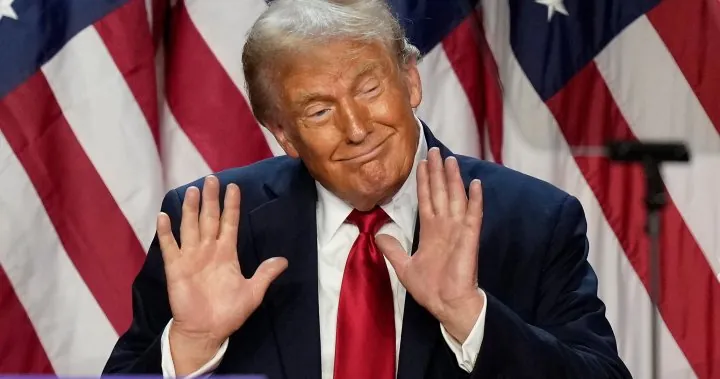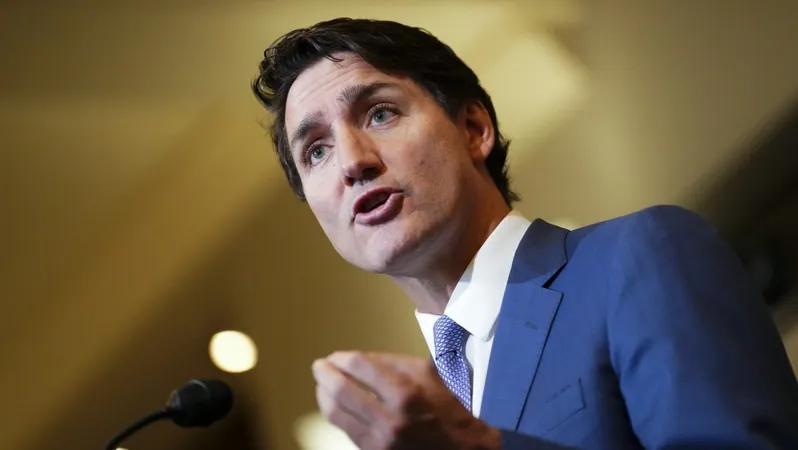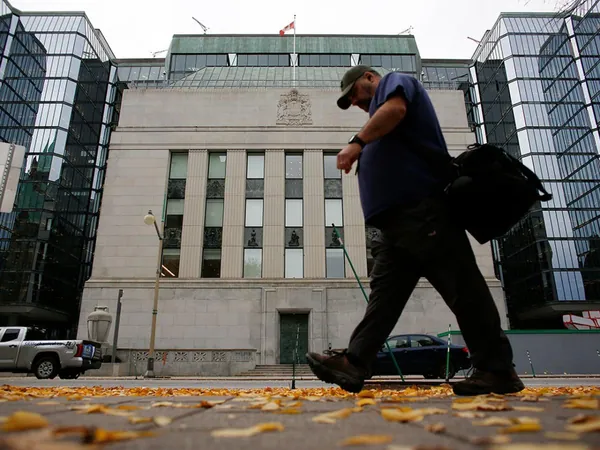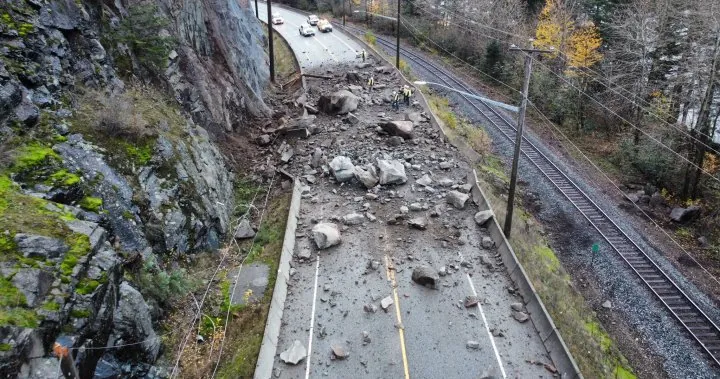
Trump’s Administration: A New Wave of Criticism Towards Trudeau and Canada’s Border Policies
2024-11-13
Author: Charlotte
Introduction
As Donald Trump steps into his second term, his administration is shaping up with a lineup of staunch supporters, many of whom have openly criticized Prime Minister Justin Trudeau and expressed concerns about Canada’s border security. This shift raises questions about future Canada-U.S. relations as key appointments indicate a potential pivot in America’s foreign policy direction.
Concerns Over Canada-U.S. Relations
Fen Hampson, a prominent international affairs expert from Carleton University in Ottawa, noted, "I don’t see a whole lot of friends of Canada in there." This sentiment underscores the apprehensions of Canadian officials as Trump mirrors his previous approach to international partnerships.
Economic Implications of Tariffs
The political landscape is further complicated by Trump’s proposed import tariffs, which could significantly harm the Canadian economy. A recent report from the Canadian Chamber of Commerce warned that a minimum 10% import tariff could lead to economic repercussions, amounting to a staggering loss of around $30 billion annually for Canada. This move aligns with Trump’s longstanding criticism of Canada’s trade practices, hinting at a potentially turbulent economic relationship ahead.
Diverging Support for Ukraine
In a striking contrast to Trudeau's pro-Ukraine stance, Trump has expressed skepticism about continuing support for Ukraine amidst its struggle against Russian aggression. This divergence highlights the ideological rift between the two nations, with Canada keen on supporting Ukraine’s sovereignty and the U.S. under Trump possibly retreating from such positions.
Key Appointments and Their Impact
One notable appointment, Mike Waltz as national security adviser, has intensified these tensions. Waltz, a three-term congressman, has been vocal about Trudeau’s handling of China and the broader implications for North America. Just recently, he predicted on social media that Conservative Leader Pierre Poilievre would unseat Trudeau in the upcoming elections, framing it as a much-needed revitalization for Canadian politics.
Focus on Immigration and Border Security
The focus on immigration and border security remains a top agenda item for Trump and his appointees. For instance, Florida Senator Marco Rubio, rumored to be named Secretary of State, has raised alarms about border security, criticizing Canada’s humanitarian decisions regarding Palestinian refugees. Rubio's statements reflect a wave of skepticism towards Canada’s border policies amid concerns of potential threats entering through its northern border.
Comments from Elise Stefanik
Elise Stefanik, Trump’s pick for UN ambassador, has similarly turned her attention to border security. A member of the Northern Border Security Caucus, she emphasized the need for enhanced measures to prevent what she describes as "dangerous illegal immigrants" from crossing into the U.S. from Canada. Her recent comments underline a growing narrative that portrays Canada as a potential source of security concerns.
Trump's Supporters on Border Policies
Adding to the mix, South Dakota Governor Kristi Noem, a loyal Trump supporter, is expected to lead the Department of Homeland Security. Despite her controversial statements about Canada, she has previously acknowledged the positive aspects of the Canada-U.S.-Mexico Agreement (CUSMA), which is poised for review in 2026. However, the underlying tensions remain palpable as she emphasizes her view of border security.
Future of Tariffs and Trade Negotiations
As experts speculate on the future of tariffs and trade negotiations, questions loom about how aggressively the Trump administration will pursue these policies. Some analysts warn that Canada might be hit with tariffs early in Trump’s term, while others suggest the need for Canada to remain composed and proactive, focusing on opportunities rather than fears.
Canada's Strategic Response
In response to the changing political landscape, Trudeau’s government has already revitalized a cabinet committee dedicated to Canada-U.S. relations, indicating a strategic approach in navigating the potential challenges ahead. Trudeau remains optimistic, asserting that during Trump’s first presidency, the two countries successfully negotiated trade agreements by aligning their interests, a strategy he intends to uphold as the new administration takes shape.
Conclusion
In a world where every diplomatic move is under scrutiny, the next steps will be crucial for both nations, leading to a potentially transformative chapter in Canada-U.S. relations. Can Canada maintain its position on the world stage amidst this shifting dynamic? Stay tuned as we follow the unfolding story.









 Brasil (PT)
Brasil (PT)
 Canada (EN)
Canada (EN)
 Chile (ES)
Chile (ES)
 España (ES)
España (ES)
 France (FR)
France (FR)
 Hong Kong (EN)
Hong Kong (EN)
 Italia (IT)
Italia (IT)
 日本 (JA)
日本 (JA)
 Magyarország (HU)
Magyarország (HU)
 Norge (NO)
Norge (NO)
 Polska (PL)
Polska (PL)
 Schweiz (DE)
Schweiz (DE)
 Singapore (EN)
Singapore (EN)
 Sverige (SV)
Sverige (SV)
 Suomi (FI)
Suomi (FI)
 Türkiye (TR)
Türkiye (TR)